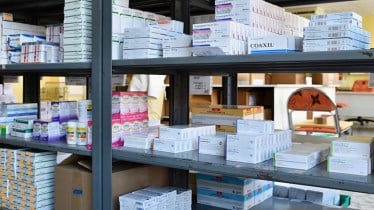The Indian pharma sector is facing the prospects of closures and consolidation given the tariff hikes proposed by the US, said a note from Rubix Data Sciences. The higher tariffs will increase the production costs and render the locally-made drugs less competitive in the US market as compared to alternatives from other countries.
The smaller pharma companies operating on tight margins would face considerable pressure. Many low-margin generic drugs may become unprofitable, forcing companies to stop sales or exit certain product segments,” the note said.
Segments like generic formulations, active pharmaceutical ingredients (API) and contract research, development, and manufacturing organisation (CRDMO) are likely to be hit more than the biosimilars. For instance, generic formulations segment, in particular, would be hit hard, as Indian firms supply a substantial portion of the US’ generic drug needs. A Bain & Co report said that India pharma supplies close to 40% of the US generics demand.
The note said that API and CRDMO segments where Indian players have high exposure to the US market is likely to face difficulties. “Although these businesses operate on a B2B (business-to-business) model which will allow them to pass on the cost increases to clients, there is still indirect exposure to tariffs, as their clients will also experience higher costs, potentially reducing demand,” it said.
Experts said that the proposed tariffs are going to have a significant impact on the profitability of Indian companies because they will not be able to pass on the entire cost to the end-buyers in the US. “In the longer run, there could be a shift towards thinking how this can be insourced back into the US,” said Saurabh Arora, managing director, Auriga Research.
Presently, exports of Indian drugs to the US attract zero tariffs, while the Indian tariffs range from zero to 10%. In the last union budget, the government proposed complete basic customs duty (BCD) exemption of 36 life-saving drugs and medicines and concessional customs duty of 5 per cent for six more medicines.
Even though the biosimilars segment would also experience challenges, especially since large Indian players derive a significant portion of their earnings (about 50% of their EBITDA) from the US, the US is currently less dependent on India for biosimilars as compared to generics, which may limit the impact on this segment.
India has a strong pharma network, with more than 10,000 manufacturing facilities, over 3,000 pharma companies.
The note said that it’s not going to be easy for US to impose tariffs. That’s because the the US healthcare system is heavily reliant on Indian pharma companies for affordable healthcare. “Indian medicines provided $219 billion in savings to the US healthcare system in 2022 alone and a total of $1.3 trillion between 2013 and 2022,” the note said.
